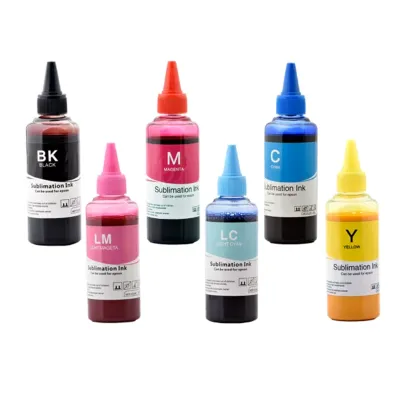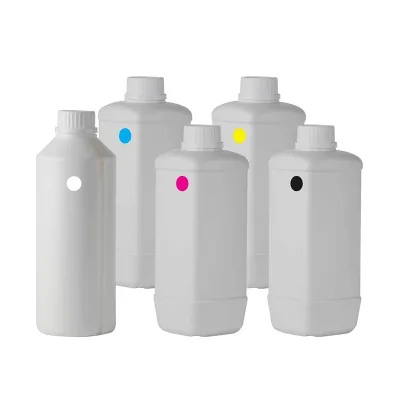Environmental Stewardship at Elzit- Redefining Sustainability in Plastic Bottle Production
Environmental Stewardship at Elzit- Redefining Sustainability in Plastic Bottle Production
In an era where environmental concerns are at the forefront of global discourse, industries across the board are grappling with the imperative to adopt sustainable practices. One such industry under intense scrutiny is the production of plastic bottles, given the alarming levels of plastic pollution plaguing our planet. In this essay, we will delve into the concept of environmental stewardship and how Elzit, a leading player in the plastic bottle manufacturing sector, is redefining sustainability through innovative approaches and responsible practices.
Understanding Environmental Stewardship
Environmental stewardship encompasses the responsible use and protection of the natural environment through conservation and sustainable practices. It involves recognizing the interconnectedness of human activities with ecosystems and striving to minimize negative impacts while promoting positive contributions to environmental health.
Challenges in Plastic Bottle Production
The production of plastic bottles presents several environmental challenges, primarily stemming from the extensive use of non-renewable resources such as fossil fuels in manufacturing processes, and the detrimental impact of plastic waste on ecosystems and wildlife. Traditional plastic bottles contribute to pollution, filling landfills, polluting oceans, and harming marine life.
Redefining Sustainability at Elzit
Elzit, a prominent player in the plastic bottle production industry, has embarked on a journey to redefine sustainability through innovative approaches and a commitment to environmental stewardship. The company recognizes the urgent need for sustainable practices and is dedicated to minimizing its ecological footprint while maximizing positive contributions to environmental conservation.
Key Initiatives and Strategies
Elzit has implemented a series of initiatives and strategies aimed at promoting sustainability throughout its operations:
Material Innovation: Elzit has invested in research and development to explore alternative materials for plastic bottle production. This includes the utilization of biodegradable plastics derived from renewable sources such as plant-based polymers.
Recycling Programs: The company has established comprehensive recycling programs to minimize waste and promote the circular economy. Elzit encourages consumers to recycle used plastic bottles through incentivized schemes and partnerships with recycling facilities.
Energy Efficiency: Elzit has implemented energy-efficient technologies and practices in its manufacturing processes to reduce energy consumption and greenhouse gas emissions. This includes the adoption of renewable energy sources such as solar and wind power.
Waste Reduction: Elzit has implemented waste reduction strategies to minimize the environmental impact of its operations. This includes optimizing packaging designs to reduce material usage and implementing closed-loop systems to minimize waste generation.
Community Engagement: Elzit actively engages with local communities to raise awareness about environmental issues and promote sustainable practices. The company supports community initiatives focused on environmental conservation and participates in outreach programs to educate stakeholders about the importance of recycling and waste management.
Impact and Outcomes
The initiatives undertaken by Elzit have yielded tangible outcomes in terms of environmental impact reduction and sustainability performance:
Reduced Carbon Footprint: By investing in energy-efficient technologies and renewable energy sources, Elzit has significantly reduced its carbon footprint, contributing to mitigating climate change.
Waste Diversion: The implementation of recycling programs and waste reduction strategies has led to a substantial increase in the diversion of plastic waste from landfills, promoting a circular economy and minimizing environmental pollution.
Enhanced Brand Reputation: Elzit's commitment to environmental stewardship has enhanced its brand reputation and credibility among consumers, leading to increased customer loyalty and market share.
Innovation Leadership: Through its focus on material innovation and sustainable practices, Elzit has positioned itself as a leader in sustainability within the plastic bottle production industry, inspiring industry-wide adoption of responsible practices.
Life Cycle Assessments: Elzit conducts comprehensive life cycle assessments (LCAs) to evaluate the environmental impact of its products from raw material extraction to end-of-life disposal. This holistic approach enables the company to identify hotspots in the production process and prioritize areas for improvement.
Closed-Loop Systems: Elzit has implemented closed-loop systems to minimize waste generation and maximize resource efficiency. These systems involve recycling and reusing materials within the production process, reducing the need for virgin materials and minimizing environmental impact.
Sustainable Packaging Design: Elzit collaborates with packaging designers and engineers to develop innovative and sustainable packaging solutions. This includes lightweighting bottle designs to reduce material usage, optimizing packaging shapes for efficient transportation and storage, and incorporating recyclable materials into product packaging.
Supply Chain Transparency: Elzit works closely with its suppliers to ensure transparency and accountability throughout the supply chain. The company conducts audits and assessments to evaluate supplier sustainability performance and encourages suppliers to adhere to ethical and environmental standards.
Stakeholder Engagement: Elzit actively engages with stakeholders, including customers, employees, investors, and NGOs, to foster dialogue and collaboration on sustainability issues. The company solicits feedback, conducts stakeholder consultations, and participates in multi-stakeholder initiatives to address environmental challenges collectively.
Environmental Education and Awareness: Elzit invests in environmental education and awareness programs to empower employees and communities with the knowledge and skills needed to adopt sustainable practices. This includes training programs, workshops, and educational campaigns focused on recycling, waste management, and environmental conservation.
Certification and Standards Compliance: Elzit seeks certifications and adheres to international standards to demonstrate its commitment to sustainability and quality. This includes certifications such as ISO 14001 for environmental management systems and adherence to regulatory requirements related to product safety and environmental protection.
Impact Measurement and Continuous Improvement
Elzit recognizes the importance of measuring and tracking the impact of its sustainability initiatives to drive continuous improvement. The company monitors key performance indicators (KPIs) related to energy consumption, greenhouse gas emissions, waste generation, and recycling rates to assess progress towards sustainability goals. By analyzing data and identifying areas for improvement, Elzit continually refines its strategies and implements new initiatives to further enhance its environmental performance.
Elzit, a frontrunner in plastic bottle production, has embraced environmental stewardship as a cornerstone of its operations, setting new standards for sustainability within the industry. Through initiatives like material innovation and recycling programs, Elzit is reshaping the narrative around plastic bottle production. By investing in energy efficiency and waste reduction strategies, Elzit not only minimizes its ecological footprint but also demonstrates a commitment to responsible resource management and conservation.
Central to Elzit's approach is its emphasis on community engagement and stakeholder collaboration. By actively involving local communities and stakeholders, Elzit fosters awareness and participation in sustainable practices. This engagement extends to all levels of the supply chain, where transparency and accountability are paramount. Elzit ensures that its suppliers adhere to ethical and environmental standards, promoting responsible sourcing practices and a culture of sustainability.
The impact of Elzit's endeavors is evident in its reduced carbon footprint, enhanced brand reputation, and leadership in innovation. Through life cycle assessments and closed-loop systems, Elzit maximizes resource efficiency and minimizes waste generation. Moreover, the company's commitment to continuous improvement is reflected in its measurement of key performance indicators and the implementation of new initiatives to further enhance its environmental performance. Elzit stands as a testament to the notion that sustainability and profitability can coexist, offering a promising vision for a greener future in the realm of plastic bottle production.
Conclusion
Elzit's redefinition of sustainability in plastic bottle production exemplifies the principles of environmental stewardship and responsible corporate citizenship. By implementing innovative initiatives and strategies, the company has demonstrated its commitment to minimizing environmental impact while maximizing positive contributions to environmental conservation. As the global community continues to grapple with the challenges of plastic pollution, Elzit serves as a beacon of hope, proving that sustainability and profitability can go hand in hand in the pursuit of a greener future.

























